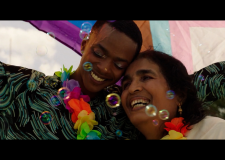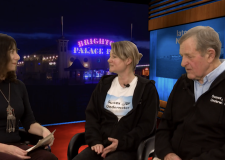Brighton and Hove parents of autistic children face unfair criticism
Parents of autistic children in Brighton and Hove have been accused of being poor parents instead of being given help.
The habit of blaming parents was highlighted by a support group in evidence to a scrutiny panel at Hove Town Hall.
In the same evidence it emerged that more than a third of parents had had to wait more than three years for a diagnosis for their autistic children after first raising concerns.
And help and support often depended on a diagnosis by a doctor.
National Autistic Society ambassador, Paula Donovan, from Hove, gave evidence alongside Sam Bayley, who chairs the support group Mascot, and Mimi Banks. All three serve on the committee that runs Mascot.
They said that schools were unlawfully excluding autistic children including those who were the victims of bullying.
Teachers, teaching assistants and governors were not sufficiently aware of autistic spectrum conditions or well trained enough in dealing with them, they said.
Mascot, which supports autistic children and their families, found in a survey that more than a third of parents said that their autistic child had been excluded from school.
Professionals in education, medicine and social services too often ignored parents even though mothers in particular would usually know their autistic child better than anyone.
The group called for health, social and education services to work more effectively together and to include parents.
Mrs Donovan said: “We wouldn’t tolerate racism … and we shouldn’t tolerate discrimination against children with autism.”
Sam Bayley suggested that schools could invite parents of autistic children to share their experiences on an inset (in-service training) day.
And several witnesses said that it would be helpful to have an “autism champion” to turn to when help was needed.
The three-person scrutiny panel was set up by Brighton and Hove City Council. It also heard from two other voluntary groups – Autism Sussex and Amaze.
Autism Sussex said that it had just received lottery funding to help people in Brighton and Hove.
Janet Poole, a mother of five with an autistic child, spoke on behalf of Amaze She highlighted geographical and class differences.
She said that children from Whitehawk and Moulsecoomb were 80 per cent less likely to have a diagnosis of autism but instead be said to have behavioural difficulties.
Middle class parents tended to be better at researching their children’s symptoms and articulating their needs, she said.
Schools had improved but there were still more improvements that could be made, she said, adding: “Sussex University is very autism-friendly.”
Former councillor Steve Harmer-Strange also gave evidence, having previously chaired a similar panel on services for autistic adults.
He criticised the pace of change, particularly as so many of the earlier panel’s recommendations had no financial cost.
He said that as a parent he had personally had “disturbing experiences” locally with the NHS. He gave several examples.
And he said that he would have more confidence in social workers if they worked more openly and transparently with parents.
The current panel has three members. It is being chaired by Green councillor Rob Jarrett and includes Labour councillor Anne Pissaridou and Conservative councillor Andrew Wealls.
After Mr Harmer-Strange gave evidence, Councillor Pissaridou said that she too had had poor personal experiences of the NHS.
She said that, like Mr Harmer-Strange, she believed that the NHS was generally wonderful and many good people in the NHS did a good job.
But she felt that it was important to feed back concerns with a view to improving performance.
The panel is due to meet again on Thursday at 10am at Hove Town Hall.





















